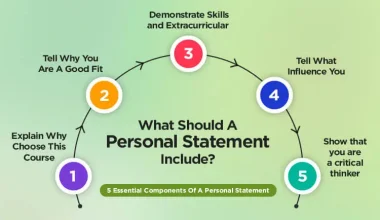Do apprentices pay tax? Apprentices are subject to the same income tax regulations as other taxpayers. If you are a high school student and at the same time an apprentice, you can combine this learning with employment, as this could be a fantastic opportunity to gain practical experience while also making money.
While enrolling in an apprenticeship can benefit you greatly, it can also be a significant step. This is because you are working, potentially even full-time, while you are still in school.
Starting an apprenticeship can raise a lot of issues, whether you have just graduated from high school, from college, or even from another profession. Especially the complex financial ones involving tax and social security.
However, in this article, we will answer the frequently asked question “Do Apprentices Pay Tax and National Insurance?” And also gives you more tips on how you can earn and still be a student.
Read also: How Long Does it Take to Become a Doctor?
Table of Contents
- Tax on Apprenticeships
- Income Tax Allowances
- National Insurance Contributions (NICs)
- What are the Different Types of National Insurance?
- Do Apprentices Pay Tax?
- How much does an apprentice earn?
- Are apprentices paid for college days?
- Are Apprenticeships Full-Time Education?
- What are the Apprenticeship Levy and Employer Responsibilities?
- Do Apprentices Get Holidays
- FAQs
- In Conclusion: Do Apprentices Pay Tax
- References
- Recommendations
Tax on Apprenticeships
The rules governing the taxes of apprenticeships can be rather simple. For tax purposes, apprentices are typically regarded as employees.
So, this implies that you might have to pay income tax on your earnings, just like any other employee. However, your income and your circumstances will determine how much tax you pay.
You can read this: What Happens to Your Student Loans When You Die?
Income Tax Allowances
Every person is entitled to the Personal Allowance, which is a tax-free sum of money. The Personal Allowance is currently £12,570 as of the 2023–2024 tax year.
This means that any income you get below this amount is exempt from income tax. However, you will be subject to income tax based on a progressive tax system if your income surpasses this amount.
National Insurance Contributions (NICs)
National Insurance contributions are another significant component of financial duties for apprentices in addition to income tax.
NICs are contributions made to the government for some state benefits and pension plans. If your earnings as an apprentice are higher than the Lower Earnings Limit (LEL), you will be required to pay NICs.
For the 2023–2024 tax year, the LEL for National Insurance is fixed at £123 per week. If your income is below this amount, you won’t be required to pay national insurance. However, you must pay contributions if your income is more than the LEL.
See also: How To Use Mind Maps Effectively for Revision While Studying
What are the Different Types of National Insurance?
The class of National Insurance that applies to apprentices will depend on their age and income. There are various classes.
- Apprentices under the age of 16 and State Pension recipients who are 16 and earning more than the LEL must contribute to Class 1 National Insurance. The rate for apprentices is classified as falling under Category H, which has a lower proportion than the average rate.
- National Insurance Classes 2 and 4: These classes typically apply to freelancers. Class 2 and 4 payments often do not apply to apprentices who are employed by an apprenticeship agreement since they are not regarded as self-employed.
Do Apprentices Pay Tax?
Getting your head around many unfamiliar concepts when you initially begin your apprenticeship might be challenging. From the struggle to
strike a balance between work, education, and personal time to the shock of starting a new job full-time. However, trying to understand how taxes and other financial matters operate is likely the component that causes the greatest confusion.
In the UK, there are many different types of taxes that we could incur daily. This covers taxes on things like alcohol and tobacco as well as consumption taxes (VAT).
View this article from EconomicsHelp.org to learn more about various tax categories. Income tax, council tax, and national insurance are also included.
Do Apprentices Pay Income Tax?
Income tax is exactly what its name implies. On almost all forms of income, it is a tax. The primary one of these is income earned through employment, but you may also owe taxes on your pension and self-employment profits.
An apprentice is a worker exactly like any other. This implies that an apprentice’s ability to pay income tax entirely depends on their earnings.
An apprentice must pay income tax if their annual income exceeds £12,570. They won’t have to pay income tax if their yearly income is below this amount.
Also, read this: 50 Best Military Discounts For 2024 And How To Get Them Now
Do Apprentices Pay Council Tax?
Compared to income tax, council tax is slightly different. Its benefits may be more obvious because it is gathered by your local council for use in your neighborhood. Mostly when it comes to commonplace services like libraries and garbage disposal.
At the age of 18, you will typically have to begin paying council tax. This proposal assumes that each home has two individuals residing in it.
As a result, if the apprentice is younger than 18, they will immediately be exempt from paying council tax. Additionally, some apprenticeship programs exclude apprentices from payment requirements altogether.
You will need a statement from your employer stating that you aren’t being paid more than £195 per week to be free from council tax as an apprentice.
Additionally, it must state that your apprenticeship training will result in a credential recognized by the Scottish Vocational Education Council (SVEC) or Ofqual. Check out this government manual for further details on who is responsible for paying council tax.
Do Apprentices pay National Insurance?
Employees, employers, and the self-employed all have to pay national insurance, which is a tax on earnings (usually from employment or profit if you’re self-employed). Depending on whether you’re employed or self-employed, this tax may increase your eligibility for certain benefits, such as the state pension or parental leave.
Generally, if you are 16 years old or older, make £190 or more per week, or are self-employed and make £6725 or more in profit annually, you must pay national insurance. Before you can begin paying, you must also have a National Insurance number.
To ensure that your tax and National Insurance contributions are registered to you alone, a National Insurance number is a combination of digits and letters. Look here at Gov. uk to find out more information.
Therefore, unless your weekly salary is less than £190, you must pay National Insurance as an apprentice. However, if you are under 25, earning less than £967 per week, and enrolled in an apprenticeship program that has received government approval, your business might gain.
Check this: Who Is Eligible For A Student Loan In The UK?
How much does an apprentice earn?
Some variables will affect how much an apprentice will make. These include the type of business, the location, the level of apprenticeship, the employee’s age, and the type of business itself.
The National Minimum Wage, which is determined by the government and revised annually, is at least what apprentices are entitled to. The trainee is only eligible to receive the apprentice rate if they are under 19 or in the first year of their apprenticeship.
From April 2022, this will be an hourly wage of £4.81. The apprentice will, however, be entitled to the salary rate commensurate with their age if they are over 19 and at least in the second year of their apprenticeship.
Are apprentices paid for college days?
A regular full-time job can be compared to an apprenticeship in many ways, yet it is still extremely different. primarily because you continue to mix employment with study and training when you are an apprentice.
As a result, when it comes to receiving payment, this too functions differently than it would in a typical full-time job.
In the UK, an apprentice must be paid for their regular working hours, any apprenticeship-related training, and any English coursework or Maths coursework they do.
The training can occur at any time, such as once a week, once a month, or at a different particular period, as long as it totals at least 20% of your typical working hours.
Additionally, you could complete the training and study for English and math qualifications online, in a college or training facility, or at your place of employment. Check out this government manual for further details on what an apprentice is compensated for.
As long as your college days were spent on your Apprenticeship, you will be paid for them.
Read also: Is Triple Science Hard? Is It Worth Taking GCSE Triple Science?
Are Apprenticeships Full-Time Education?
Do apprenticeships count as full-time schooling, then? Simply said. You are not breaking the law if you complete an apprenticeship.
Don’t mistake full-time schooling for full-time classroom instruction, though; with an apprenticeship, you’ll benefit from both academic and practical training. In other words, you will pick up skills while working.
Here are some further insights on how apprenticeship learning is structured:
Classroom learning
You won’t study full-time throughout your apprenticeship, but you will finish your degree in a classroom or through online learning.
Your education will be directed by a training organization, like Babington, and will take place off the job one day a week or over a few days in a short period.
Everything you need to succeed in the industry of your choice will be covered in your studies. They will help you develop the abilities you need to succeed while also providing you with an understanding of what goes on behind the scenes in a company.
When dealing with challenging situations at work, you may refer back to the lessons you learned while earning your qualification as a guide.
Each stage of an apprenticeship lasts at least a year, during which time you’ll also get paid holidays and a weekly or monthly salary.
To provide you with complete discretion throughout your apprenticeship studies, you will even have the option of taking optional units in the certification.
Also, you can check this: Can You Get a Masters Maintenance Student Loan For a Master’s Degree?
Off-the-job learning
The attainment of real-world experience from an apprenticeship is its most evident advantage. These initial steps in the workplace are crucial for your professional development because it is becoming more and more important in the workplace to demonstrate your ability to accomplish something rather than merely knowing about it.
Except for the previously specified classroom learning day release, an apprentice is treated the same as a full-time employee and is supported by more seasoned team members.
You will be completely equipped to take on your exams after each level of the apprenticeship, having gained a wealth of experience and knowledge. However, some apprenticeships do not require final exams.
What are the Apprenticeship Levy and Employer Responsibilities?
Employers in the UK must pay the Apprenticeship Levy if their yearly payroll exceeds £3 million. This fee is collected at a rate of 0.5% of the employer’s pay bill and is aimed at financing apprenticeship training and assessments.
However, companies that are exempt from the tax are still obligated to pay the salary of their apprentices.
In the UK, apprenticeships are essential in determining the composition of the future workforce. It’s crucial to remember that even though apprentices may be required to pay income tax and National Insurance Contributions on their salaries, they are still eligible for the same tax thresholds and reliefs as regular employees.
To ensure compliance and sound financial planning, trainees should familiarize themselves with the most recent tax limits and rules.
Employers must also be aware of their obligations about apprenticeship salaries and the Apprenticeship Levy because these issues may have an impact on how their businesses are run.
To ensure accurate and current information regarding income tax for apprentices in the UK, it is crucial to speak with a competent tax professional or refer to the most recent government guidelines. This is because tax laws and regulations are subject to change over time.
Related post: Can a Student Get a Credit Card? 2024 Requirements
Do Apprentices Get Holidays
You should be entitled to the same benefits as regular employees as an apprentice or trainee, including paid time off for holidays, illness, and yearly leave.
FAQs
Does the government pay the apprentice’s wage? Apprenticeship wages are not covered by the levy – this is something your business will need to cover like you would any other employee. This also includes any time spent at the workplace, college, or with your training provider.
If you or someone who lives with you is an apprentice or a youth trainee, you may be entitled to a 25% discount on your Council Tax. If there are only apprentices and trainees at a property. there is a 50% discount. In limited circumstances, some school leavers can also qualify for a 25% discount.
Is it legal for an apprentice to work alone? It is legal for an apprentice to work alone if it is safe to do so. Employers have the same responsibilities to apprentices as they do any other employee.
Apprenticeship Levy is charged at 0.5% of your annual pay bill. You can use HMRC’s Basic PAYE Tools to help you work out how much you need to pay. For the first month of the tax year: Divide your Apprenticeship Levy allowance by 12.
In Conclusion: Do Apprentices Pay Tax
According to their age and income, an apprentice may be required to pay tax and/or national insurance. If an apprentice earns more than £12,570 annually, they must pay income tax.
An apprentice who is under the age of 18 is exempt from paying council tax.
Also, if their apprenticeships meet specific criteria and they are not paid more than £195 per week, apprentices will not be required to pay council tax.
If an apprentice earns more than £190 per week and is older than 16, they must pay national insurance.
References
- thinkstudent.co.uk/ ______ Taxes
- completeapprenticeshipguide.com _____ Do You Pay Tax and National Insurance on an Apprenticeship?





